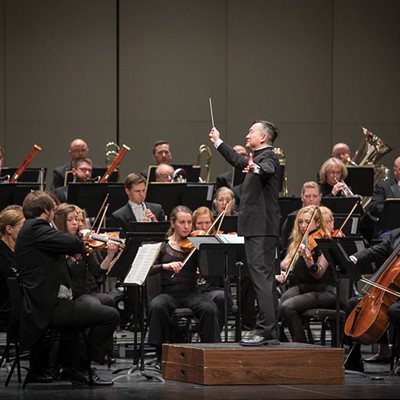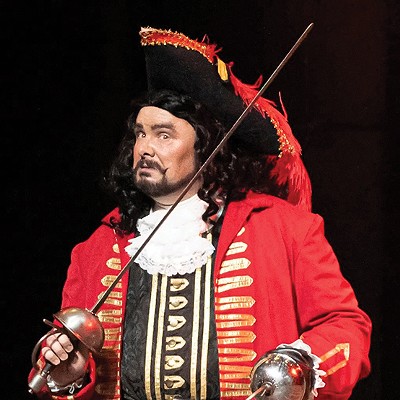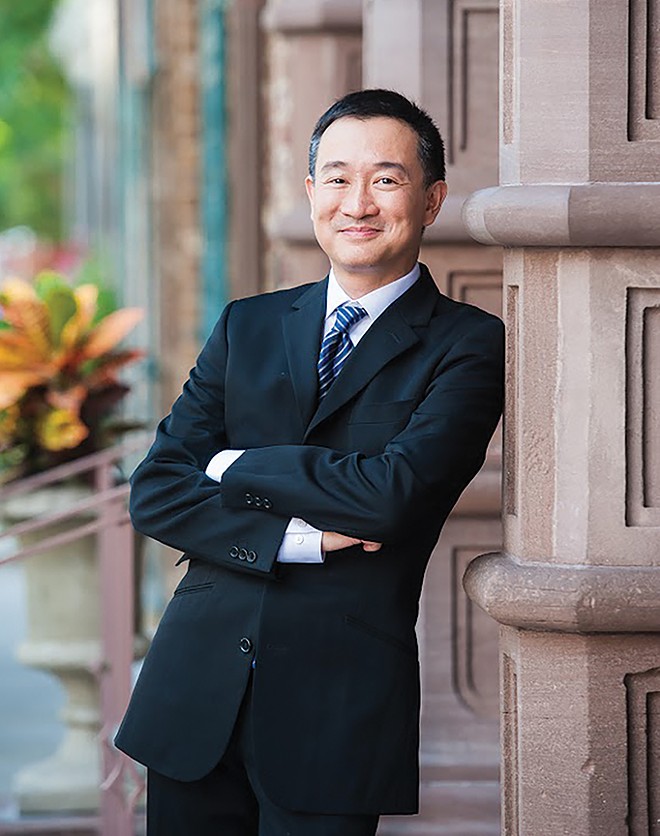
Ken Lam knew it was time for a change.
He had worked hard. He was at the top of his game. A law degree from Cambridge University. An expert in international corporate law and economics. Respected and rewarded for his brilliance and tenacity. A glittering career from London to Hong Kong.
But the second half of his life was ahead of him. His future was calling, and it was telling a different story. He remembers the moment he left the law behind.
It was a typical, endlessly intense session of corporate deal-making, Lam says. "Hong Kong, 3 a.m. on a Sunday morning. We were negotiating in a smoke-filled room. I remember being about to black out from the smoke. I stood up, looked at my boss, and said, 'I've had enough.'"
The second half of Ken Lam's life wasn't to be about the art of the deal, but about art and music.
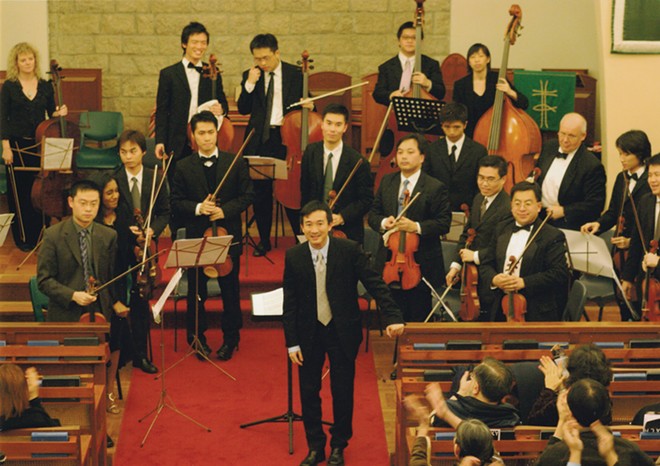
That's what led him to a career as an in-demand orchestral conductor, and as music director of the Illinois Symphony Orchestra, and now also leading the Springfield Choral Society. Making his base of operations in Springfield, he's using his position to build audiences and seek artistic collaborations in central Illinois.
It was a radical change, from corporate law to leading a symphony orchestra, but Lam was prepared. His devotion to music had been lifelong.
"I grew up in Hong Kong and it's a crazy, crowded city. No space for sports. My school's basketball court was on the roof of a 16-story building. Like all good Hong Kong kids, I grew up with music, played piano and violin."
American kids learn life lessons of teamwork, dedication and hard work on the playing fields. In Hong Kong, Lam learned them in the rehearsal room. "Every student was required to be proficient in two instruments," he explains. "The music itself was almost incidental to the discipline and competitiveness of the music-making."
Lam loved music, but recalls, "My parents urged something practical. I studied in England, read economics at Cambridge, and then the law." Music became a life-affirming hobby, although he discovered his love for conducting in a dramatic way.
"I was rehearsing with an amateur orchestra in Hong Kong. The conductor didn't show, so I filled in. I knew nothing, but I had passion. I didn't have a baton, so I grabbed a pencil. On the downbeat I drove the point of the pencil into my forehead. I still have the scar. They invited me to conduct the orchestra."
He studied in his spare time. Then came that fateful night in the smoke-filled conference room. It was a huge risk to leave the law, but he threw himself into music. He also made some shrewd choices and developed a community of mentors and advisers, like noted conducting guru Gustav Meier. He studied music at the Peabody Institute at The Johns Hopkins University in Baltimore.
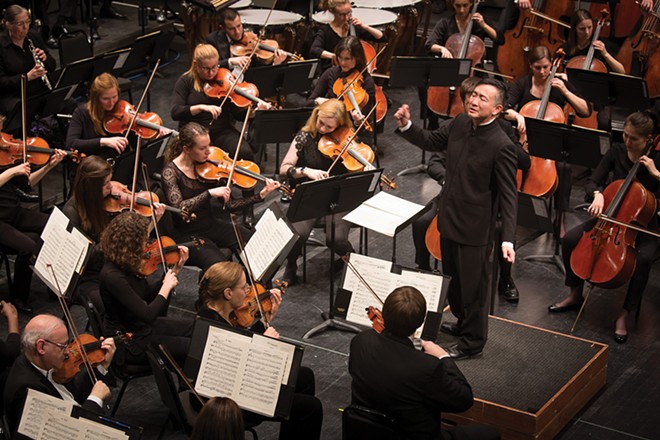
Any life is like a story. The stories we hold in our minds can hinder us or help us. Lam had a great story to tell – a new conductor who gave up the law – that displayed his passion.
"Everything was unexpected," he says. "My first job was with the Cincinnati Orchestra – I won over 400 applicants. I was in the right place at the right time."
"I feel like I have a great perspective on art. As a lawyer, you miss one tiny thing and you lose $500 million." But Lam wonders just how important any deal is in the grand scheme of things.
"What we do with the orchestra and music is amazing. We bring people together. It's art, it's beauty, and beyond that beauty, there is always truth. And I think all of us in our different ways are seeking that."
"You have to develop a taste for classical music; it isn't about instant gratification." But even for the uninitiated, there are satisfactions. Lam tells us, "A great piece of music unfolds, and it proceeds logically one note to the next note all the way from the beginning to its logical conclusion. Everything makes sense."
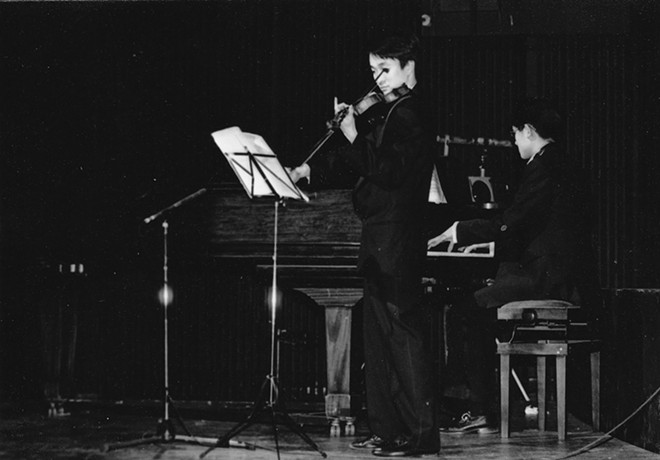
Works that have endured can make people better. "If you listen to the slow movement of Beethoven's 'Emperor Concerto' played by a great pianist, you will be changed. As musicians, we do what we do because we feel we can make a difference in people's lives.
"And we try different things. This season we're doing a concert with the music of the seminal rock groups Queen and Journey. You always want to take a little bit of a risk.
"When we talk about beauty and truth, we feel like we're transcending something, and we all need that. People approach it in different ways. To bring our audience closer to that, the experience needs two open minds. The audience needs to be open to new experiences and we need to be open to be able to reach them through the sounds, the music, the performance."
"I believe in the work that we're doing at the Illinois Symphony. I try to use all of my experience – as a lawyer and as a musician – and look for opportunities of collaboration with other central Illinois institutions, like the Springfield Choral Society and our work with the Sangamon Valley Youth Orchestra."
So, for Ken Lam, the lessons learned in those smoked-filled corporate conference rooms go hand in hand with his visions as a man of music – visions of collaboration, community and the transcendent power of art.
Dennis Thread of Springfield is a freelance writer and director of opera, theater, documentaries and film. He was an associate director of "The Long Careers Project," a Carnegie Corporation study that asked "Why and how do some folks happily extend their careers past the normal retirement age?" The answer is in the hidden power of intentional and regular reinvention throughout the entire life span. Contact Dennis Thread at [email protected].



